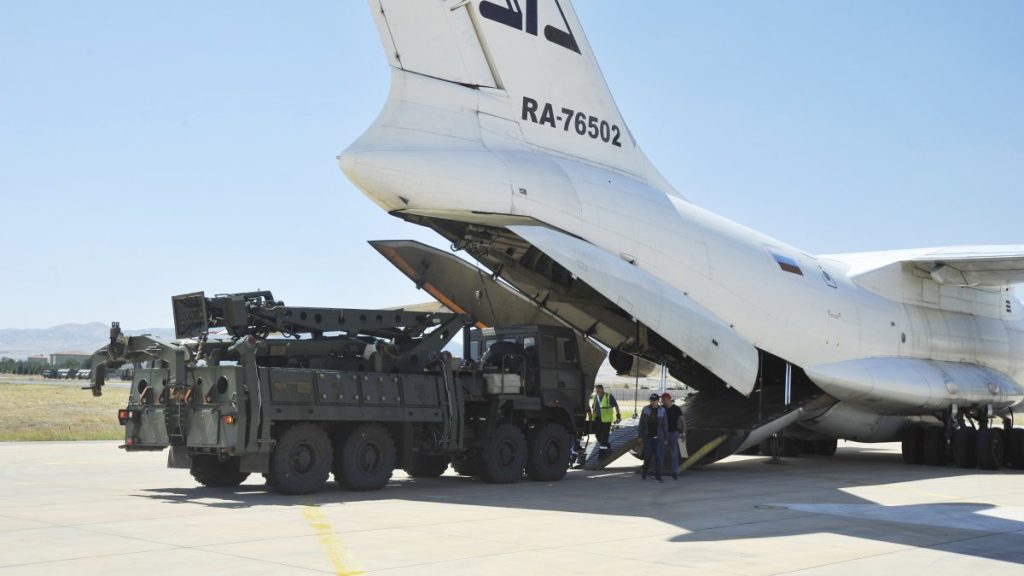The military developments that occurred in Syria late last year with the fall of the Assad regime, turned the situation upside down, not only on the Syrian chessboard but also altered alliances and centers of influence. The changes that took place in Damascus led to significant shifts in the regional and international power map. These changes affected not only the nature of the Syrian scene but also the relationships between key actors such as Türkiye, Russia and the United States.
Among the many other outcomes of these changes in the Syrian landscape, Syria was removed from the Iran-backed alliance in the region. As a result, Hezbollah became isolated and further weakened since the land corridor Tehran used to transport weapons through Iraq and Syria to its proxies, particularly in Lebanon, and its reach to the Mediterranean was severed. This had been a justification used by Israel for continuously targeting Syrian territories, but today, that justification no longer exists.
Meanwhile, media reports on Türkiye’s return to the F-35 program suggest that the U.S. will return F-35 jets to Türkiye and reintegrate the country into the F-35 program, provided that the issue of the Russian S-400 missile system is resolved first.
S-400 crisis
Türkiye’s purchase of the S-400 missile system was one of the most controversial issues with the U.S., alongside the U.S. support for the Gülenist Terror Group (FETÖ) and the PKK. Ankara decided to purchase the S-400 system from Russia after the U.S. rejected Türkiye’s request to buy the American Patriot missile defense system during Barack Obama’s presidency.
The U.S. and NATO claim that the Russian system is “incompatible with NATO systems and weapons.” Interestingly, Russia has previously sold S-300 missiles to several NATO countries, including Bulgaria, Greece, Croatia and Slovenia.
Recent reports show Washington’s willingness to resolve the ongoing dispute with Ankara. Since completing the purchase, the U.S. has requested that Türkiye return the S-400 missiles to Russia, sell them to another country or commit in writing not to activate the system.
Since the issue extends beyond just a missile system, Ankara seeks to maintain a balance between Moscow and Washington, preferring not to risk its relationships with either side at the expense of the other. One of the most feasible scenarios that could be accepted by the three key parties is the deployment of the S-400 system in Syria.
Alternative to consider
The deployment of the S-400s in Syria could be part of a joint defense agreement between Damascus and Ankara, with increasing discussions recently about strengthening security cooperation between the two neighboring countries. This could become more plausible as Israel continues to target Syrian territories, opening the door for further Turkish-Syrian cooperation in this context.
Observers point out that this scenario could be welcomed by all involved parties, as it would enhance Türkiye’s defensive posture against aerial threats, maintain a stable relationship with Russia during this sensitive time in Syria’s developments, and align with the security and military agreements expected to be signed between Ankara and Damascus. This is particularly relevant after the justification Israel used to attack Syrian territories, such as countering Iranian expansion or arms transfers to Hezbollah, making it no longer valid. Deploying the S-400 missile defense system could contribute to regional stability amid escalating Israeli attacks.
Today, it seems that Russian-Syrian relations are on the brink of a new chapter between Moscow and Damascus, one in which Russia’s previous support for the Assad regime winds down, and calls for the reconstruction of Syria independently of Western powers increase. It is well known that Russia supports Syria’s territorial integrity and opposes any separatist movements, a stance that Türkiye also strongly supports and emphasizes. Given all the above and many other reasons, Moscow may not oppose such a proposal.
However, all of the above will only occur after an agreement between Ankara, Moscow and Washington.


